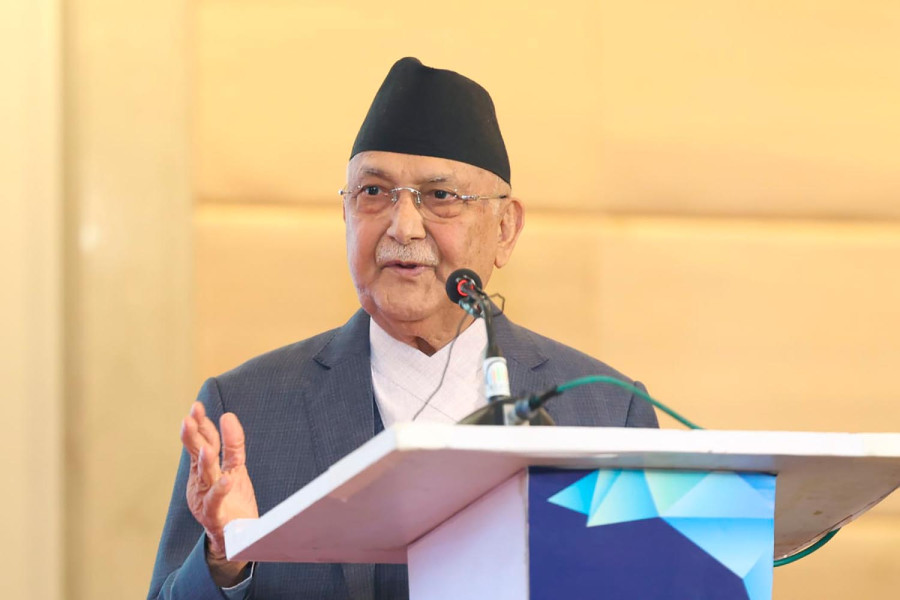Editorial
Wasted words
The PM would be advised not to speak if he doesn’t have anything of substance to say.
Prime Minister KP Sharma Oli loves giving long speeches. From the halls of the prime minister’s official residence at Baluwatar to party gatherings at various parts of the country, he addresses at least one gathering a day. On Saturday, Oli reached Gokarna Forest Resort to address an event hours after arrival from his five-day Thailand visit. On Sunday, he addressed a big delegation from far-western districts who sought the prime minister’s budgetary support to run Khaptad Engineering Campus in Doti. On Monday, he gave a long speech at an event titled Himalayan Dialogue at Everest Hotel, Baneshwar. Then, the following day, he reached Janakpur to deliver a speech at the Madhesh Provincial Assembly. He also addressed a mass gathering in Siraha district headquarters on the same day–and so on and so forth. He had addressed assemblies in Lumbini, Karnali and Sudurpaschim provinces recently.
But the veteran communist leader often seems to forget his audience or the theme of his address. There is nothing wrong with the prime minister’s decision to go to each provincial assembly and address them by turn. But what is his underlying motive? For instance, members of the Madhesh Provincial Assembly said they found most of the parts of the prime minister’s long speech irrelevant. He is visiting provinces and interacting with provincial assembly members at a time when provinces have become a major target of the anti-federalist constituencies. The provinces are projected as a burden on state coffers, creating a strong public perception against the provincial system. The Rastriya Swatantra Party, fourth largest in the House of Representatives, has officially advocated an overhaul of the provincial structure citing ‘its utter failure to deliver’. It has not even participated in the provincial elections. The fifth-largest Rastriya Prajatantra Party and a few other fringe parties have demanded a scrapping of provinces.
The provinces however have their own grievances. They have been regularly complaining that provincial agencies have not been able to perform due to lack of their own police force, among other things. They have for years been demanding provincial police and endorsement of the federal civil service Act. Their demand is that they be allowed to exercise all the powers delegated to them by Schedule 6 of the Constitution of Nepal. Chief ministers visited Kathmandu several times to draw the federal leaders’ attention. Prime ministers of successive governments pledged to address their demands but to no avail.
Making provinces work is probably the most vital as well as the most daunting task when it comes to making this constitution and the federal democratic system work. The provinces still appear lost. In such a situation, it is the prime minister’s responsibility to constructively communicate with the provincial leadership, give them a clear direction, and end the state of confusion over provincial rights and responsibilities. Unfortunately, successive prime ministers have failed in this crucial responsibility.
The prime minister’s words must carry weight. There is no point in him going to different provinces and addressing their assemblies if he is not committed to their effective functioning. In fact, he will be much more popular among provincial lawmakers and politicians if he empowers them by enacting the right laws and devolving more powers. He then does not need to say much.




 9.89°C Kathmandu
9.89°C Kathmandu














